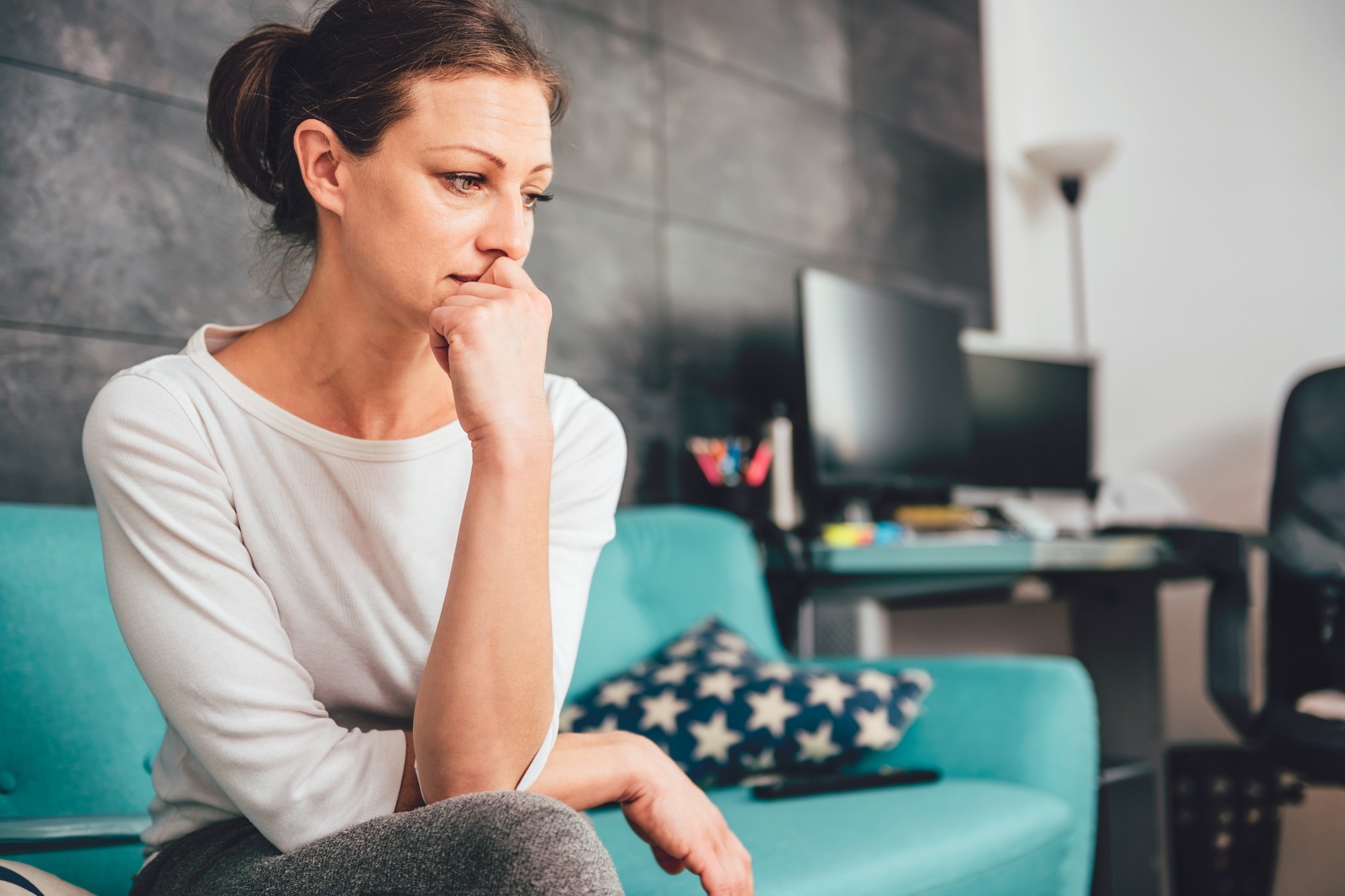A recent study posted to the bioRxiv* preprint server evaluates how people with anxiety respond to a gambling decision-making task.
 Study: Risk and Loss Aversion and Attitude to COVID and Vaccines in Anxious Individuals. Image Credit: Zivica Kerkez / Shutterstock.com
Study: Risk and Loss Aversion and Attitude to COVID and Vaccines in Anxious Individuals. Image Credit: Zivica Kerkez / Shutterstock.com

 *Important notice: bioRxiv publishes preliminary scientific reports that are not peer-reviewed and, therefore, should not be regarded as conclusive, guide clinical practice/health-related behavior, or treated as established information.
*Important notice: bioRxiv publishes preliminary scientific reports that are not peer-reviewed and, therefore, should not be regarded as conclusive, guide clinical practice/health-related behavior, or treated as established information.
Risk behavior and anxiety
Anxiety disorders have been associated with behavioral changes in decision-making. The Prospect theory describes how individuals prefer sure outcomes with a low magnitude over less sure outcomes with a high magnitude, thus resulting in risk-averse behaviors.
Previous studies have evaluated anxiety effects on risk aversion and linked high anxiety to elevated risk aversion bias in decision-making tasks. Notably, some of these studies using computational models report mixed findings; however, limited studies have assessed loss aversion.
Risk and loss aversion in anxiety can profoundly affect everyday life and economic decisions, especially in crises such as the coronavirus disease 2019 (COVID-19) pandemic. When public health is at stake, understanding what motivates attitudes and behaviors toward vaccination and pre-emptive measures is essential.
About the study
In the present study, researchers quantify the impact of risk and loss aversion on decision-making in an online gambling task. A total of 163 participants in the United Kingdom were recruited in September and October 2022. After exclusions, 115 participants were included.
During the computer-based gambling task, participants were asked to choose between a sure option and a gambling wheel, with a 50% probability of each option appearing on the wheel after spinning.
Two types of trials including mixed gamble and gain-only trials were studied. In the mixed gamble trial, the sure option was £0 and the gambling wheel had an equal probability of winning a small monetary reward or losing some money. In the gain-only trial, the sure option was a fixed and small amount of money and the wheel had an equal chance of winning a larger monetary reward or nothing.
The experiment comprised 98 mixed gamble and 50 gain-only trials, in which participants selected between options within four seconds. Participants completed a state trait anxiety inventory (STAI), a seven-item generalized anxiety disorder (GAD-7) scale, and COVID-19-related questionnaires after the gambling task.
The team fitted three models derived from the Prospect theory to participant data. The first model estimated risk and loss aversion, whereas the other two models estimated only loss and risk, respectively. Maximum likelihood estimation (MLE) and the hierarchical Bayesian (HB) method were used to fit models.
Findings
The proportions of gambling were not different by anxiety or vaccination status. The mean reaction time was statistically non-significant between individuals with high and low anxiety, COVID-19 vaccination status not having an impact on this factor. However, significant differences in reaction times were observed in the mixed gamble trials between high- and low-anxiety groups.
The researchers observed that the HB method produced better results than MLE. Participants were risk-averse and valued losses twice as much as wins.
Individuals with high anxiety showed more loss aversion than low-anxiety subjects, with no differences in risk aversion. GAD-7 scores were significantly correlated with loss aversion but not with risk aversion.
A logistic regression model was fitted using GAD-7-based anxiety as the dependent variable and risk and loss aversion as independent variables. The model revealed that loss aversion, rather than risk aversion, was a significant predictor of anxiety. There was no correlation between risk/loss aversion and COVID-19 attitudes/behaviors.
Conclusions
Individuals with increased levels of GAD had higher loss aversion than those with lower levels of GAD. Risk aversion was not different between high and low anxiety groups.
Future studies should focus on the effects of motivation and rewards on risky decision-making.

 *Important notice: bioRxiv publishes preliminary scientific reports that are not peer-reviewed and, therefore, should not be regarded as conclusive, guide clinical practice/health-related behavior, or treated as established information.
*Important notice: bioRxiv publishes preliminary scientific reports that are not peer-reviewed and, therefore, should not be regarded as conclusive, guide clinical practice/health-related behavior, or treated as established information.